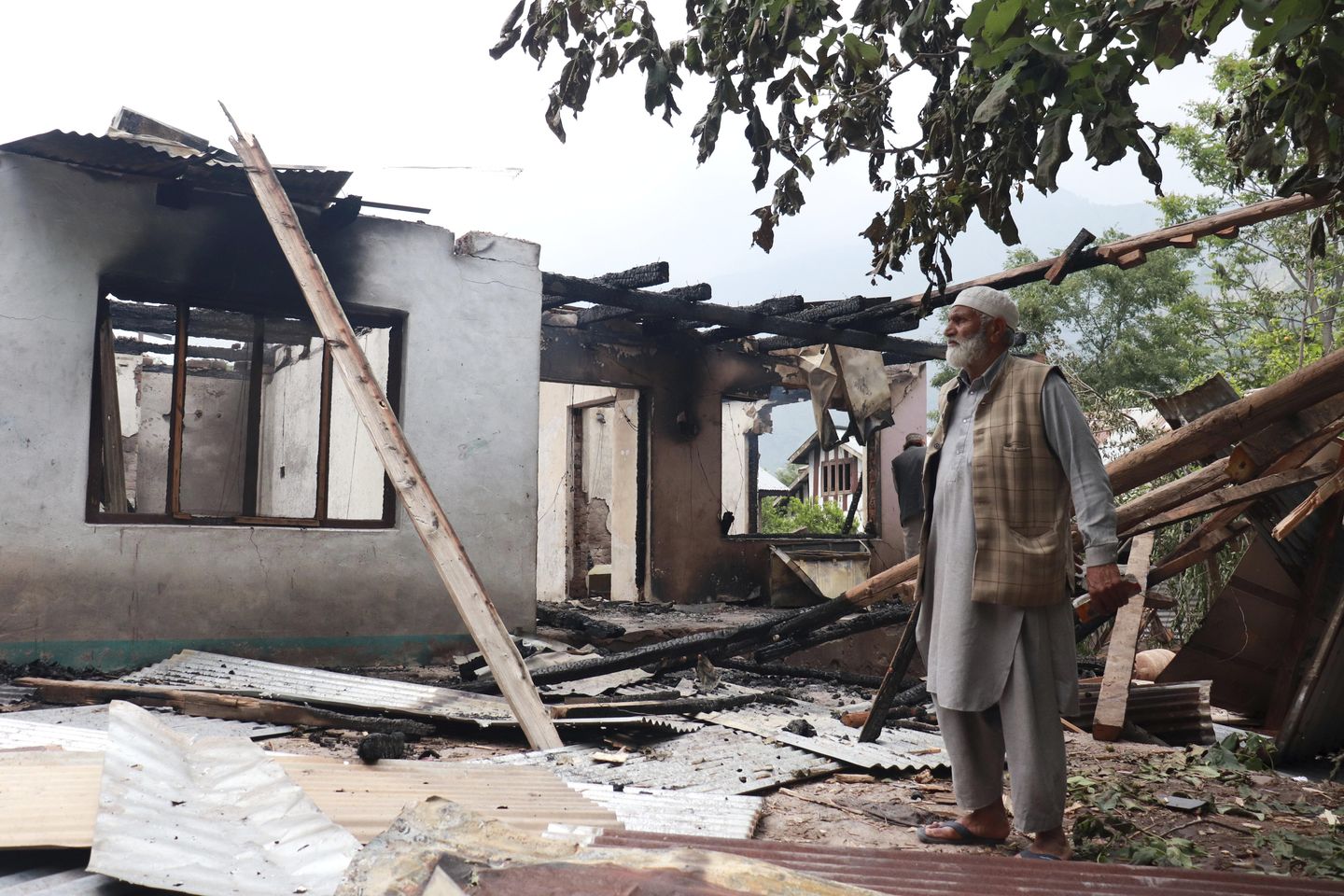
SEOUL, South Korea — India launched airstrikes that killed at least 26 people in Pakistan early Wednesday, intensifying already high tensions between the two nuclear-armed neighbors.
The Indian Ministry of Defense said in a statement that its armed forces struck “terrorist infrastructure in Pakistan and Pakistan-occupied Jammu and Kashmir from where terrorist attacks against India have been planned and directed.”
Nine sites were targeted, the ministry stated. Unconfirmed reports said the strikes on alleged terrorist facilities killed 26 people and injured 46 others. Some Indian aircraft may have been lost, likely inside Indian airspace.
Indian media reported the operation lasted 25 minutes.
Pakistan has authorized its forces to respond. Pakistani Prime Minister Shehbaz Sharif said in a televised address to Parliament that “five [Indian] aircraft were dropped down” and reminded lawmakers their nation is a nuclear power.
Pakistan’s state broadcaster PTV called the airstrikes an “unprovoked, cowardly and unlawful act of war,” posting on X that seven locations had been hit with “coordinated missile, air and drone strikes.”
SEE ALSO: India tells other countries it’s ready to retaliate if Pakistan escalates
“India, against all sanity and rationality, has once again ignited an inferno in the region,” PTV said, adding that it had downed “five Indian fighter aircrafts and Unmanned Aerial Vehicles.”
India’s attack “deliberately targeted the civilian areas, on the false pretext of presence of imaginary terrorist camps,” PTV stated, adding that Pakistan’s armed forces had been “authorized to undertake corresponding actions in this regard.”
Tensions have been high since Hindu-majority New Delhi accused Muslim-majority Islamabad of being involved with terrorists who killed 26 people in Pahalgam in the disputed, India-controlled province of Kashmir on April 22. Pakistan has denied any involvement.
India and Pakistan have fought two of their three wars over the Himalayan region of Kashmir, which is split between them and claimed by both in its entirety.
In the wake of the massacre, the rivals have expelled each other’s diplomats and nationals, closed their borders and shuttered airspace. India has also suspended a critical water-sharing treaty with Pakistan.
In 2019, the two countries came close to a war after a Kashmiri insurgent rammed an explosive-laden car into a bus carrying Indian soldiers, killing 40. India responded with airstrikes.
Washington, the United Nations and multiple states are urging calm.
President Trump called the situation a “shame” and said, “I just hope it ends very quickly,” according to Reuters.
“I am monitoring the situation between India and Pakistan closely,” said Secretary of State Marco Rubio, who last week held calls with his counterparts in both nations. “I echo POTUS’s comments earlier today that this hopefully ends quickly and will continue to engage both Indian and Pakistani leadership towards a peaceful resolution.”
U.N. Secretary-General Antonio Guterres called for maximum restraint because the world could not “afford a military confrontation” between India and Pakistan, according to a statement from spokesperson Stephane Dujarric.
China also called for calm. Beijing is the largest investor in Pakistan by far and has multiple border disputes with India, including one in the northeastern part of the Kashmir region.
News reports from the region say there has been limited artillery exchanges across the countries’ frontier, and a terse statement from the Indian military suggested a stand down on aggressive acts.
“These steps come in the wake of the barbaric Pahalgam terrorist attack in which 25 Indians and one Nepali citizen were murdered,” the Indian Defense Ministry stated. “We are living up to the commitment that those responsible for this attack will be held accountable.”
The ministry claimed that its attacks had been proportional.
“Our actions have been focused, measured and non-escalatory in nature,” the statement continued. “No Pakistani military facilities have been targeted. India has demonstrated considerable restraint in selection of targets and method of execution.”
Alex Neill, a regional security expert with think tank Pacific Forum, said he believes “the greatest emphasis will be on de-escalation at the moment: The main thrust is that [India] wanted to punish Pakistan in a contained way without escalating to the nuclear threshold.”
Mr. Neill said he expects Washington to advocate calm between India and Pakistan, noting U.S. diplomatic efforts to mediate cease-fire negotiations between Russia and Ukraine and resolve the Israel-Hamas conflict.
“There is probably anxiety in the U.S. because they are having to deal with Zelenskyy-Putin negotiations and all the other negotiations,” he said, referring to Ukrainian President Volodymyr Zelenskyy and Russian President Vladimir Putin.
• This article is based in part on wire service reports.












